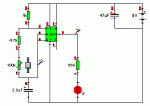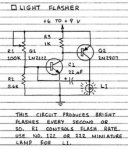Yes, it was a jungle for me too.
If you learn the basics, as said by Pete, that gives a good starting point.
In many cases choosing a value is based on memory - it's called experience - and that can't all be learnt at school, though you can make a start right now.
Like learning the 'times tables' when you are 5 years old I don't have to think about how to work out 7x9.
I keep a notebook (and CAD folder) of more complicated things, sometimes jokingly called a 'grimoire' - look it up.
As you get more used to it you'll be able to design things based on the flow of currents - this is why the water/plumbing analogy can be useful.
But you really need to know the basics to get going.
And you need to understand what is going on to be able to do the calcs to define and refine your design.
It won't happen overnight. Effort in = Results out.
... and then you can design things without having to wait for a Forum answer .

Same with coding. After a few years the general code flow hovers in your mind's eye. Sad.

One thing I am certain of;
This question will provoke many replies .... you may have opened the Old Hack Reminiscing Floodgates.
"I remember in 1894 when Faraday showed me...

.
Good luck.
PS. There a dozens of websites showing basic electronic function and design.
Spend an hour searching and then put ssome links here.
Otherwise you'll get a hundred replies with a 100 websites and you'll lose track.


